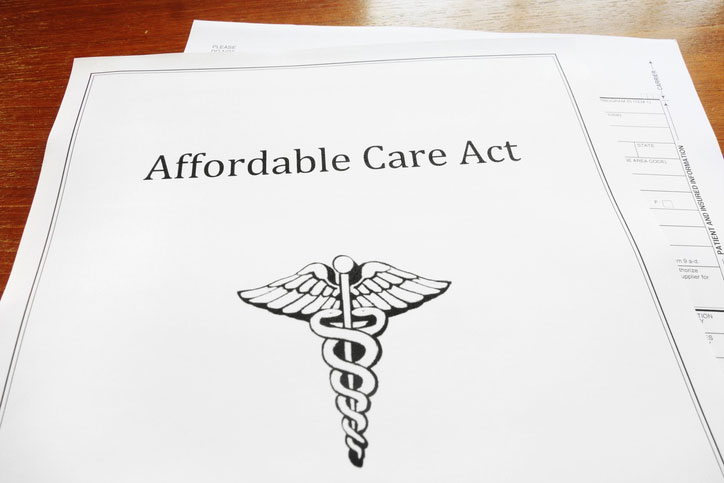Speech-language pathologists face 10 major challenges in 2025, including federal education funding cuts, healthcare policy changes, restrictions on student loan programs, and AI integration into clinical practice. Understanding these challenges helps prospective SLPs choose graduate programs that prepare them for an evolving professional landscape.
- Emerson College - Master's in Speech-Language Pathology online - Prepare to become an SLP in as few as 20 months. No GRE required. Scholarships available.
- Grand Canyon University - Online Master of Science in Speech-Language Pathology. - This STEM program focuses on training aspiring speech-language pathologists to offer compassionate, effective services to individuals with communication disorders
- Arizona State University - Online - Online Bachelor of Science in Speech and Hearing Science - Designed to prepare graduates to work in behavioral health settings or transition to graduate programs in speech-language pathology and audiology.
- NYU Steinhardt - NYU Steinhardt's Master of Science in Communicative Sciences and Disorders online - ASHA-accredited. Bachelor's degree required. Graduate prepared to pursue licensure.
- Pepperdine University - Embark on a transformative professional and personal journey in the online Master of Science in Speech-Language Pathology program from Pepperdine University. Our program brings together rigorous academics, research-driven faculty teaching, and robust clinical experiences, all wrapped within our Christian mission to serve our communities and improve the lives of others.
The field of speech-language pathology continues to advance with new breakthroughs and evolving challenges each year. Your clinical training as an SLP is designed to give you the flexibility to adapt to new developments. But staying informed about current professional challenges is essential for both career planning and educational decisions.
The American Speech-Language-Hearing Association (ASHA) closely monitors the profession and advocates for policies that ensure Americans can access quality therapy from highly trained SLPs. Each year, ASHA publishes advocacy priorities addressing current challenges facing the field. The 2025 landscape presents both obstacles and opportunities that will shape the profession for years to come.
Whether you’re considering a master’s degree in speech-language pathology or you’re already practicing, understanding these ten key challenges will help you make informed decisions about your education, specialization, and career path.
Understanding the Current Landscape
The speech-language pathology profession operates within a complex ecosystem of federal education programs, healthcare policies, and professional certification requirements. Changes in any of these areas can significantly impact where SLPs work, how they’re compensated, and which populations they serve.
ASHA identified 10 priority areas for 2025 based on federal policy shifts. These changes affect everything from graduate program funding to reimbursement rates for clinical services. While some challenges create uncertainty, they also highlight opportunities for well-prepared SLPs who understand the evolving landscape.
The key is viewing these challenges not as barriers but as factors to consider when planning your educational path and career strategy. SLPs who graduate with diverse skill sets, strong technology backgrounds, and flexible specialization options will be best positioned to adapt as the field evolves.
1. K-12 Education Funding and Administration

Federal oversight of special education programs provides critical support for school-based SLPs. Recent administrative changes at the Department of Education have created concerns about consistent program delivery across states. Staffing reductions at the federal level may affect how programs supporting students with disabilities are administered.
School-based positions represent a significant portion of SLP employment. Changes in federal education funding can impact everything from IEP implementation timelines to the availability of continuing education resources for school SLPs.
What This Means for Your Career: School-based SLP positions remain in high demand, but practitioners may need to advocate more actively for resources and support. Graduate programs that include strong coursework in special education law, IEP development, and school system administration will provide valuable preparation.
2. Higher Education Support and Research Funding

The Department of Education supports graduate education through grants, research funding, and student financial aid programs. Some universities have seen research grants paused or reduced, including programs that train developmental specialists and SLPs.
These changes may affect the availability of graduate assistantships, research opportunities, and specialized training programs at some universities. Students should research the funding stability of programs they’re considering.
What This Means for Your Career: Look for graduate programs with diverse funding sources, including state support, private endowments, and industry partnerships. Programs with strong clinical partnerships and multiple revenue streams are less vulnerable to fluctuations in federal funding.
3. Gender-Affirming Care Services

Speech-language pathologists play an important role in gender-affirming voice modification services. According to ASHA, “Speech-language pathologists play a central role in clinical services for gender affirmation.” This specialization involves helping clients develop communication patterns that align with their gender identity.
Policy changes affecting gender-affirming care may reduce insurance coverage for these services in some states. SLPs specializing in this area may need to adapt their practice models or expand into related specializations.
What This Means for Your Career: Voice therapy skills transfer well to other specializations, including professional voice users, vocal health, and transgender communication training. Graduate programs offering comprehensive voice therapy coursework provide flexibility across multiple career paths.
4. Diversity, Equity, and Inclusion Requirements

ASHA implemented DEI certification maintenance requirements in 2023. Current CCC-SLP holders need Professional Development Hours in DEI topics by the end of 2025 to maintain credentials.
Recent executive orders have restricted DEI training in federal agencies and some government-contracted positions. While ASHA is a private organization and these restrictions don’t apply to its certification requirements, SLPs employed by federal agencies or working under certain government contracts may face limitations on accessing DEI training through their employers.
What This Means for Your Career: SLPs can complete DEI PDH requirements through independent professional development, private organizations, or university continuing education programs. Graduate students should seek programs that integrate cultural competency throughout the curriculum rather than as separate coursework.
5. Compensation Disruptions

Tricare, the healthcare program for military families, serves more than 9 million beneficiaries, including many children who need SLP services. Administrative changes in early 2025 created payment processing delays for healthcare providers. ASHA has expressed concern about ongoing payment and credentialing issues affecting SLPs.
Payment delays can create cash flow problems for private practices and impact the availability of providers who accept Tricare. The situation also highlights the importance of understanding healthcare reimbursement systems.
What This Means for Your Career: Graduate programs that include healthcare business management, billing practices, and reimbursement systems better prepare you for practice ownership or management roles. Diversifying your payer mix and understanding contract negotiations are essential business skills.
6. Medicaid Restrictions

Medicaid provides healthcare coverage for low-income families, seniors, and individuals with disabilities. ASHA has advocated extensively to ensure SLP services are covered under Medicaid programs. Proposed changes to eligibility requirements, including expanded work requirements, could affect coverage for some patients.
Changes in Medicaid enrollment may shift the payer mix for SLPs working in schools, early intervention programs, and outpatient clinics. Providers who serve Medicaid populations predominantly need to monitor policy changes carefully.
What This Means for Your Career: Understanding multiple service delivery models prepares you for changes in patient populations. SLPs with skills in telepractice, group therapy, and consultation models can adapt more easily to reimbursement changes.
7. Medicare Support and Telehealth Authorities

Medicare covers SLP services for adults recovering from strokes, managing neurological conditions, and addressing swallowing disorders. ASHA’s 2025 advocacy priorities include seeking relief from scheduled payment cuts and extending SLP telehealth authorities that expanded during the pandemic.
Telehealth has proven particularly valuable for patients in rural areas and for maintaining continuity of care. Telehealth flexibilities for SLPs were extended through December 31, 2024, and may require further Congressional action for continued expansion. The current political climate creates uncertainty around these extensions.
What This Means for Your Career: Telehealth skills are increasingly important regardless of policy changes. Graduate programs offering telehealth practicum experiences and coursework in digital service delivery prepare you for a range of practice settings.
8. Student Loan and Public Service Loan Forgiveness

Public Service Loan Forgiveness (PSLF) has been an important benefit for SLPs working in schools, nonprofit organizations, and government agencies. A graduate degree is required for SLP licensure, and many students rely on PSLF to manage educational debt.
Concerns have been raised about potential changes to PSLF eligibility requirements, though no such changes have been confirmed as of November 2025. Additionally, administrative changes at the Department of Education have affected student aid processing, including disruptions to the FAFSA website.
What This Means for Your Career: Diversify your funding strategy beyond federal loan forgiveness programs. Consider private scholarships, graduate assistantships, employer tuition reimbursement, and programs with lower overall costs. Don’t base career decisions solely on the availability of loan forgiveness.
9. Healthcare Coverage Concerns

The Affordable Care Act (ACA) expanded healthcare coverage to millions of Americans, including many who need SLP services. While ACA repeal attempts have occurred in the past, no active repeal effort is underway as of November 2025. Changes to specific provisions or funding mechanisms remain possible depending on Congressional priorities.
Any significant changes to healthcare coverage could affect the insured population seeking SLP services, particularly for adult neurological conditions, voice disorders, and dysphagia management. The pediatric coverage landscape could also be impacted by policy adjustments.
What This Means for Your Career: SLPs with diverse specialization skills can adapt to changing patient populations. Programs offering broad clinical training across the lifespan and multiple disorder types provide more career flexibility than narrowly focused specializations.
10. Artificial Intelligence in Clinical Practice

Artificial intelligence presents both opportunities and challenges for speech-language pathology. AI tools are being developed for speech assessment, articulation practice, and language intervention. ASHA is monitoring AI applications in clinical practice and advocating for appropriate use.
A growing concern is the use of AI in healthcare utilization management and coverage determinations. While direct AI application to SLP service authorization remains limited, insurance companies are increasingly using algorithmic systems in claims review processes. Recent lawsuits against major insurers highlight AI-driven denials in healthcare more broadly, raising questions about transparency and appeals processes that could eventually affect SLP reimbursement.
What This Means for Your Career: Understanding AI capabilities and limitations is essential. Graduate programs incorporating technology literacy, data interpretation, and digital ethics prepare you to work alongside AI tools while maintaining clinical judgment and advocating for patient needs.
Impact on Career Prospects and Job Market
Despite these challenges, the SLP job market remains strong. The Bureau of Labor Statistics projects 21% growth in SLP employment from 2022 to 2032, well above the average for all occupations. This growth is driven by increased awareness of speech and language disorders, an aging population, and expanded school-based screening.
| Challenge Area | Affected Settings | Impact Level | Mitigation Strategy |
|---|---|---|---|
| K-12 Education Funding | Schools, Early Intervention | Medium | Strong advocacy skills, knowledge of special education law |
| Higher Education Support | Graduate Programs | Medium | Choose programs with diverse funding sources |
| Gender-Affirming Care | Private Practice, Outpatient Clinics | Low-Medium | Develop broad voice therapy expertise |
| DEI Requirements | All Settings | Low | Complete PDH through independent professional development |
| Compensation Disruptions | Private Practice, Military Facilities | Medium | Diversify payer mix, understand billing practices |
| Medicaid Changes | Schools, Outpatient, Early Intervention | Medium | Flexible service delivery models, telepractice skills |
| Medicare/Telehealth | Skilled Nursing, Home Health, Adult Outpatient | Low-Medium | Develop telehealth competencies |
| Student Loan Programs | All Settings | Medium-High | Diversified funding approach, scholarships |
| Healthcare Coverage | All Settings | Low-Medium | Broad clinical skills across populations |
| Artificial Intelligence | All Settings | Growing | Technology literacy, advocacy training |
Regional variations in these challenges create different opportunities across the country. States with strong special education funding, robust Medicaid programs, and supportive licensure requirements offer more stable environments for new graduates. Research the policy landscape in states where you plan to practice.
How These Challenges Should Shape Your Graduate Education
Understanding current professional challenges helps you make strategic decisions about your path to becoming a speech-language pathologist. Here’s how to position yourself for success in an evolving field.
Prioritize Broad-Based Clinical Training
While specialization has its place, uncertain market conditions favor generalist preparation. Look for graduate programs offering clinical experiences across multiple settings, age groups, and disorder types. This flexibility allows you to pivot if opportunities in one area become limited.
| Program Feature | Why It Matters | What to Look For |
|---|---|---|
| Diverse Clinical Placements | Prepares you for multiple employment settings | Placements in schools, medical, outpatient, and telepractice |
| Business and Advocacy Training | Essential for navigating reimbursement and policy challenges | Coursework in healthcare systems, billing, and professional advocacy |
| Technology Integration | Prepares you to work with emerging tools and AI | Telehealth training, digital assessment tools, data literacy |
| Liberal Arts Foundation | Develops critical thinking and advocacy skills | Integrated coursework in ethics, policy, and social issues |
| Financial Stability | Ensures program quality isn’t affected by funding cuts | Multiple funding sources, strong endowment, state support |
Develop Strong Technology Skills
Technology competency is no longer optional. Beyond learning specific software, develop broader digital literacy, including understanding how algorithms work, interpreting data outputs, and recognizing AI limitations. These skills prepare you to work alongside technology rather than being displaced by it.
Build Your Professional Network Early
Strong professional connections provide both career opportunities and support during challenging times. Join ASHA as a student member, attend state association meetings, and connect with SLPs working in diverse settings. These relationships often lead to job opportunities and mentorship.
Consider Geographic Flexibility
Some states offer more favorable working conditions for SLPs than others. Research state-specific policies on licensure, continuing education requirements, scope of practice, and reimbursement rates. Being willing to relocate can significantly expand your opportunities.
Diversify Your Funding Strategy
Don’t rely solely on federal loan programs. Apply for private scholarships, seek graduate assistantships, consider part-time enrollment while working, and look for programs offering tuition discounts. Lower overall debt gives you more career flexibility.
Resources and Next Steps
Several organizations provide support for SLPs navigating these professional challenges:
Professional Organizations:
- American Speech-Language-Hearing Association (ASHA) – Advocacy updates, continuing education, and policy resources at asha.org
- State Speech-Language-Hearing Associations – Local advocacy and networking opportunities
- National Student Speech Language Hearing Association (NSSLHA) – Student resources and professional development
Career Planning Resources:
- Bureau of Labor Statistics – Employment projections and salary data at bls.gov
- ASHA Career Portal – Job listings and career guidance
- State Licensing Boards – Requirements and scope of practice information
Financial Planning:
- Federal Student Aid – Information on loans and repayment options
- Financial Aid Counselors – Available through graduate programs
- ASHA Scholarship Programs – Minority and general student scholarships
Frequently Asked Questions
Will these challenges affect my ability to find a job as an SLP?
The SLP job market remains strong with 21% projected growth from 2022 to 2032. While some challenges may shift where jobs are available or how they’re structured, overall demand for SLPs continues to exceed supply. SLPs with diverse skills and geographic flexibility have excellent employment prospects.
Should I avoid specializing in gender-affirming care given policy uncertainties?
Voice therapy skills are valuable across multiple populations, including professional voice users, singers, teachers, and individuals with vocal pathologies. Training in gender-affirming voice services develops transferable expertise. Consider programs that offer comprehensive voice therapy training, preparing you to work with diverse populations rather than a single specialization.
How can I prepare for AI’s impact on the SLP profession?
Focus on developing skills AI can’t easily replicate, such as clinical reasoning, therapeutic relationships, family counseling, and advocacy. Learn to use AI tools as aids rather than replacements. Graduate programs incorporating technology literacy, data interpretation, and digital ethics prepare you to work effectively alongside AI systems while maintaining your clinical judgment.
Is it still worth pursuing an SLP career given these challenges?
Absolutely. SLP remains a rewarding career with strong job security, competitive salaries, and the satisfaction of helping people communicate effectively. Every profession faces challenges from policy changes, technology, and market shifts. The key is choosing graduate programs that prepare you to adapt and build a diverse skill set that keeps you employable across multiple settings.
What should I look for in a graduate program, given current challenges?
Prioritize programs with diverse clinical placements across multiple settings, coursework in healthcare business and advocacy, technology integration including telehealth training, and strong financial stability from multiple funding sources. Programs emphasizing adaptability and broad-based training prepare you better for an evolving professional landscape than narrowly focused specialty programs.
How can I reduce educational debt without relying on federal loan forgiveness?
Apply for private scholarships through ASHA, state associations, and community organizations. Seek graduate assistantships that provide tuition waivers and stipends. Consider programs with lower tuition or substantial financial aid. Some students work part-time as SLP assistants while completing their degrees. Research employer tuition reimbursement programs for post-graduation employment.
Will school-based SLP jobs become less secure?
Schools continue to face critical shortages of SLPs, with many positions going unfilled each year. Federal education funding changes may affect resources and support, but are unlikely to eliminate the fundamental need for school-based speech-language services required under IDEA. Strong advocacy skills and understanding of special education law help school-based SLPs navigate administrative challenges.
- Emerson College - Master's in Speech-Language Pathology online - Prepare to become an SLP in as few as 20 months. No GRE required. Scholarships available.
- Grand Canyon University - Online Master of Science in Speech-Language Pathology. - This STEM program focuses on training aspiring speech-language pathologists to offer compassionate, effective services to individuals with communication disorders
- Arizona State University - Online - Online Bachelor of Science in Speech and Hearing Science - Designed to prepare graduates to work in behavioral health settings or transition to graduate programs in speech-language pathology and audiology.
- NYU Steinhardt - NYU Steinhardt's Master of Science in Communicative Sciences and Disorders online - ASHA-accredited. Bachelor's degree required. Graduate prepared to pursue licensure.
- Pepperdine University - Embark on a transformative professional and personal journey in the online Master of Science in Speech-Language Pathology program from Pepperdine University. Our program brings together rigorous academics, research-driven faculty teaching, and robust clinical experiences, all wrapped within our Christian mission to serve our communities and improve the lives of others.
Key Takeaways
- Job market remains strong: Despite challenges, SLP employment is projected to grow 21% from 2022 to 2032, faster than most occupations.
- Flexibility is key: Graduate programs offering broad-based training across multiple settings and populations prepare you to adapt to changing opportunities.
- Technology skills matter: Understanding AI capabilities, telehealth delivery, and digital tools is increasingly essential for all SLPs.
- Diversify your approach: Don’t rely solely on federal loan forgiveness programs. Build a diversified funding strategy that includes scholarships and assistantships.
- Stay informed and connected: Join professional organizations, follow policy developments through ASHA, and build your professional network early.
- Challenges create opportunities: Well-prepared SLPs who understand the evolving landscape can position themselves strategically for long-term career success.
Ready to Start Your SLP Journey?
Understanding current challenges helps you choose a graduate program that prepares you for success in any professional environment. Explore accredited programs offering the diverse training, technology skills, and flexible education you need to thrive as a speech-language pathologist.

